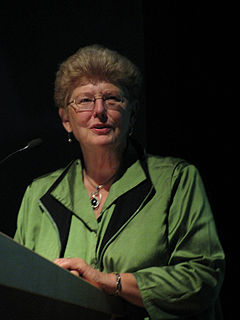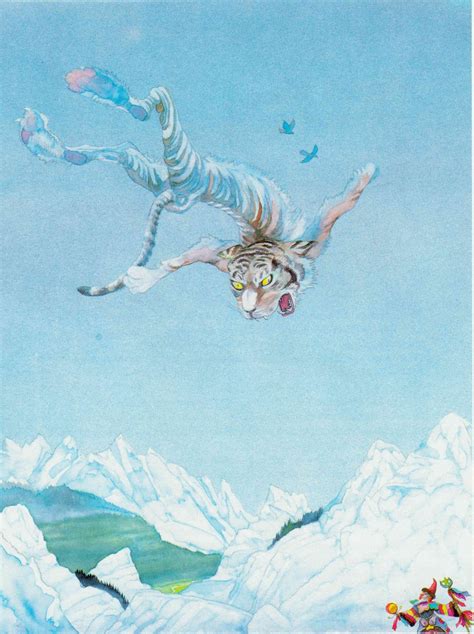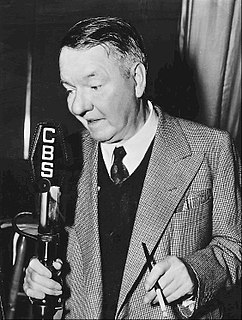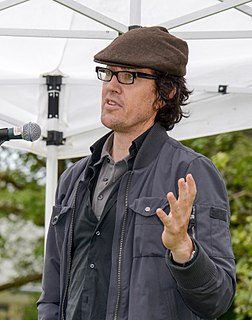Top 1200 Print Books Quotes & Sayings - Page 3
Explore popular Print Books quotes.
Last updated on December 4, 2024.
My goal is to create a sustainable long-term business that, we're committed to print, we're rooted in print, but we're expanding into digital and into modernizing the way we sell to customers through e-commerce and things like that. And it requires different skill sets; it requires different ways of doing business.
I have an office in my house, with a comfy red print reading chair and a soft cream-colored desk. After I walk Winston the Wonder dog and have my breakfast, I head to my office. Every single day. Sometimes, when I'm working on revisions, I print off my manuscript and go to a coffee shop to work. But mostly you can find me in my office.
[The web] is going to end up being a tremendous advantage, providing we can work out the financial structure. I think we’ll see newspapers survive, being printed at home... Or you’ll have a local print shop, so that rather than waiting for the newspapers to arrive by truck, which is 30 percent at least of a newspaper’s cost, you’ll go in and push a button, and it will take your dollar bills without anyone having to be there. And it will print the newspaper for you while you wait. It will take seven minutes. There’s a terrific future for print in my view and it gives me great heart.
Lulled into somnolence by five hundred years of print, literary studies have been slow to wake up to the importance of MSA (media-specific analysis). Literary criticism and theory are shot through with unrecognized assumptions specific to print. Only now, as the new medium of electronic textuality vibrantly asserts its presence, are these assumptions clearly coming into view.
I am a product of endless books. My father bought all the books he read and never got rid of any of them. There were books in the study, books in the drawing room, books in the cloakroom, books (two deep) in the great bookcase on the landing, books in a bedroom, books piled as high as my shoulder in the cistern attic...In the seemingly endless rainy afternoons I took volume after volume from the shelves. I had always the same certainty of finding a book that was new to me as a man who walks into a field has of finding a new blade of grass.
When you look at the whole explosion of the Internet, the decline of print journalism, there are all of these plus-or-minus ramifications, and you have to work it out. The great thing about books is that you have a tactile thing that's there. You can download this or download that, but how long do you want to be staring at a screen for the rest of your life? You've got to have some kind of proper interface for people that's not about the screen.
In a print interview, as you may or may not know, they [editors] can do whatever they want. And they do. This is why most people are more hesitant to do print, because they can change it, and they do change it. They even change things that are in quotation marks, which is a pet peeve of mine. I've said to numerous reporters, "Would you read me back my direct quotes?" And they always say no. They always say that's against the policy.
Books, books, books in all their aspects, in form and spirit, their physical selves and what reading releases from their hieroglyphic pages, in their sight and smell, in their touch and feel to the questing hand, and in the intellectual music which they sing to the thoughtful brain and loving heart, books are to me the best of all symbols, the realest of all reality.
When Emily Dickinson's poems were published in the 1890s, they were a best-seller; the first book of her poems went through eleven editions of a print run of about 400. So the first print run out of Boston for a first book of poems was 400 for a country that had fifty million people in it. Now a first print run for a first book is maybe 2,000? So that's a five-time increase in the expectation of readership. Probably the audience is almost exactly the same size as it was in 1900, if you just took that one example.
Electronic books are ideal for people who value the information contained in them, or who have vision problems, or who like to read on the subway, or who do not want other people to see how they are amusing themselves, or who have storage and clutter issues, but they are useless for people who are engaged in an intense, lifelong love affair with books. Books that we can touch; books that we can smell; books that we can depend on.
The print magazine and print journalism industry is obviously in a great deal of trouble, and one of the things that happened when this business started to give way to the Internet and to broadcast television is that a lot of organizations started cutting specifically investigative journalism and they also started cutting fact-checkers.
Distributed print is arguably our biggest challenge as a machinery supplier, as more publishers find efficiencies in transferring print production to remote printers and supersites. But our signature Goss flexibility and adaptability allow us to meet that challenge head-on with relevant technologies, services and expertise that continue to provide customers with an edge.
We have found that where science has progressed the farthest, the mind has but regained from nature that which the mind has put into nature. We have found a strange foot-print on the shores of the unknown. We have devised profound theories, one after another, to account for its origin. At last, we have succeeded in reconstructing the creature that made the foot-print. And Lo! it is our own.
Mother used to say escape is never further than the nearest book. Well, Mumsy, no, not really. Your beloved large-print sagas of rags, riches, and heartbreak were no camouflage against the miseries trained on you by the tennis ball launcher of life, were they? But, yes, Mum, there again, you have a point. Books don’t offer real escape, but they can stop a mind scratching itself raw.
In books I find the dead as if they were alive; in books I foresee things to come; in books warlike affairs are set forth; from books come forth the laws of peace. All things are corrupted and decay in time; Saturn ceases not to devour the children that he generates; all the glory of the world would be buried in oblivion, unless God had provided mortals with the remedy of books.
I start with no preconceived idea - discovery excites me to focus - then rediscovery through the lens - final form of presentation seen on ground glass, the finished print previsioned completely in every detail of texture, movement, proportion, before exposure - the shutter's release automatically and finally fixes my conception, allowing no after manipulation - the ultimate end, the print, is but a duplication of all that I saw and felt through my camera.
The worst was I had little control in terms of smoothing out my questions and making myself look good the way I could in print. All the ums and uhs and rambling and apologies and hyenalike laughter at something that really isn't funny. You know when an artist will crack a joke, and you're like, "That's so hilarious," like, the fawning laughter that you can at least cut when it's print? It's just all out there, and it's really humiliating.
I don't think tablets are where we should be focused. But I do think they could end up being an efficient way of delivering textbooks. They're just not really that, yet. There's all sorts of poisons and mined minerals and carnage that goes on to make a tablet. Way more than to print a book. Or a bunch of books.
Print works! It works as a business proposition - our print readers [of the Mother Jones] not only provide revenue in the form of subs and ads, but they are a core part of our donor community; 10 percent give us a donation on top of their subscription; that's about the same rate as NPR gets from its listeners.
Print is still responsible for a significant portion of the revenues that, you know, pay for the work of the newsroom. But, you know, digital is very important. And part of the thrill of having this job now is I get to lead us through what is both a thrilling and very challenging transition from a print world to a digital world.

























































